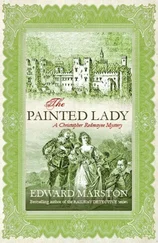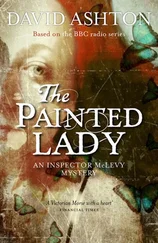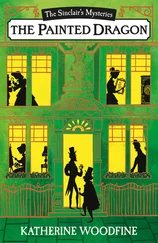Jerzy Kosiński - The Painted Bird
Здесь есть возможность читать онлайн «Jerzy Kosiński - The Painted Bird» весь текст электронной книги совершенно бесплатно (целиком полную версию без сокращений). В некоторых случаях можно слушать аудио, скачать через торрент в формате fb2 и присутствует краткое содержание. Год выпуска: 1965, ISBN: 1965, Жанр: Детская проза, на английском языке. Описание произведения, (предисловие) а так же отзывы посетителей доступны на портале библиотеки ЛибКат.
- Название:The Painted Bird
- Автор:
- Жанр:
- Год:1965
- ISBN:978-0-8021-9575-3
- Рейтинг книги:4 / 5. Голосов: 1
-
Избранное:Добавить в избранное
- Отзывы:
-
Ваша оценка:
- 80
- 1
- 2
- 3
- 4
- 5
The Painted Bird: краткое содержание, описание и аннотация
Предлагаем к чтению аннотацию, описание, краткое содержание или предисловие (зависит от того, что написал сам автор книги «The Painted Bird»). Если вы не нашли необходимую информацию о книге — напишите в комментариях, мы постараемся отыскать её.
The Painted Bird — читать онлайн бесплатно полную книгу (весь текст) целиком
Ниже представлен текст книги, разбитый по страницам. Система сохранения места последней прочитанной страницы, позволяет с удобством читать онлайн бесплатно книгу «The Painted Bird», без необходимости каждый раз заново искать на чём Вы остановились. Поставьте закладку, и сможете в любой момент перейти на страницу, на которой закончили чтение.
Интервал:
Закладка:
All day long I stared at the gangrenous leg while the child alternately sobbed and fell asleep. Its terrified family sat outside praying loudly. When the child’s attention flagged, Olga applied to his leg a red-hot rod that was held ready in the fire, carefully burning out the entire wound. The child lashed out to all sides, screamed wildly, fainted and regained consciousness. A smell of charred flesh filled the room. The wound sizzled, as though pieces of bacon were being seared in a skillet. After the wound was burned out Olga covered it with gobs of wet bread into which were kneaded mold and freshly gathered cobwebs.
Olga had a treatment for nearly every disease, and my admiration for her steadily grew. People came to her with an enormous range of complaints and she could always help them. When a man’s ears hurt, Olga washed them with caraway oil, inserted into each ear a piece of linen wound into a trumpet shape and soaked in hot wax, and set fire to the linen from outside. The patient, tied to a table, shrieked with pain while the fire burned out the remainder of the cloth inside the ear. Then she promptly blew out the residue, “sawdust” as she called it, from the ear and then coated the burned area with an ointment made from the juice of a squeezed onion, the bile of a billy-goat or rabbit, and a dash of raw vodka.
She could also cut out boils, tumors, and wens, and pull out decayed teeth. She kept the excised boils in vinegar until they became marinated and could be used as medicines. She carefully drained the pus that suppurated from the wounds into special cups and left it to ferment for several days. As for extracted teeth, I pulverized them myself in the large mortar, and the resulting powder was dried over pieces of bark on top of the oven.
Sometimes in the dark of the night a frightened peasant would rush in for Olga and off she would go to attend to a childbirth, covering herself with a large wrap and shuddering from the chill and lack of sleep. When she was asked to one of the neighboring villages and did not return for several days, I watched over the hut, feeding the animals and keeping the fire burning.
Although Olga spoke in a strange dialect, we came to understand each other quite well. In the winter when a storm raged and the village was in the tight embrace of impassable snows, we would sit together in the warm hut and Olga would tell me of all God’s children and of all Satan’s spirits.
She called me the Black One. From her I learned for the first time that I was possessed by an evil spirit, which crouched in me like a mole in a deep burrow, and of whose presence I was unaware. Such a darkling as I, possessed of this evil spirit, could be recognized by his bewitched black eyes which did not blink when they gazed at bright clear eyes. Hence, Olga declared, I could stare at other people and unknowingly cast a spell over them.
Bewitched eyes can not only cast a spell but can also remove it, she explained. I must take care, while staring at people or animals or even grain, to keep my mind blank of anything other than the disease I was helping her remove from them. For when bewitched eyes look at a healthy child, he will immediately begin to waste away; when at a calf, it will drop dead of a sudden disease; when at grass, the hay will rot after the harvest.
This evil spirit which dwelled in me attracted by its very nature other mysterious beings. Phantoms drifted around me. A phantom is silent, reticent, and is rarely seen. Yet it is persistent: it trips people in fields and forests, peeks into huts, can turn itself into a vicious cat or rabid dog, and moans when enraged. At midnight it turns into hot tar.
Ghosts are attracted to an evil spirit. They are persons long dead, condemned to eternal damnation, returning to life only at full moon, having superhuman powers, with eyes always turned mournfully eastward.
Vampires, perhaps the most harmful of these intangible threats because they often assume human form, are also drawn to a possessed person. Vampires are people who were drowned without having first been baptized or who were abandoned by their mothers. They grow to the age of seven in water or in the forests, whereupon they take human form again and, changing into vagabonds, insatiably try to gain access to Catholic or Uniate churches whenever they can. Once they have taken nest there they stir restlessly around the altars, maliciously soil the pictures of the saints, bite, break, or destroy the holy objects and, when possible, suck blood from sleeping men.
Olga suspected me of being a vampire and now and then told me so. To restrain the desires of my evil spirit and prevent its metamorphosis into a ghost or phantom, she would every morning prepare a bitter elixir which I had to drink while eating a chunk of garlicked charcoal. Other people also feared me. Whenever I attempted to walk through the village alone, people would turn their heads and make the sign of the cross. What is more, pregnant women would run away from me in panic. The bolder peasants unleashed dogs on me, and had I not learned to flee quickly and always keep close to Olga’s hut, I would not have returned alive from many of these excursions.
I usually remained in the hut, preventing an albino cat from killing a caged hen, which was black and of great rarity, and much valued by Olga. I also looked at the blank eyes of toads hopping in a tall pot, kept the fire burning in the stove, stirred simmering brews, and peeled rotten potatoes, gathering carefully in a cup the greenish mold which Olga applied to wounds and bruises.
Olga was highly respected in the village, and when I accompanied her I did not fear anyone. She was often asked to come and sprinkle the eyes of cattle, to protect them from any malicious spell while they were being driven to market. She showed the peasants the manner in which they should spit three times when purchasing a pig, and how to feed a heifer with specially prepared bread containing a sanctified herb before mating it with a bull. No one in the village would buy a horse or cow until Olga had decreed that the animal would remain healthy. She would pour water over it, and, after seeing how it shook itself, would give the verdict on which the price and often the very sale depended.
Spring was coming. Ice was breaking up on the river and low rays of the sun penetrated the slippery coils and eddies of the rushing water. Blue dragon-flies hovered above the current, struggling with the sudden bursts of cold, wet wind. Wraiths of moisture rising from the sun-warmed surface of the lake were seized upon by the gusts and eddies of the wind and then teased out like wisps of wool and drawn up into the turbulent air.
Yet when the eagerly expected warmer weather came at last, it brought along a plague. The people whom it struck wriggled with pain like transfixed earthworms, were shaken by a ghastly chill, and died without regaining consciousness. I rushed with Olga from hut to hut, stared at the patients in order to drive the sickness out of them, but all to no avail. The disease proved too strong.
Behind the tightly shut windows, inside the half-dark huts, the dying and suffering groaned and cried out. Women pressed the small tightly swaddled bodies of their babies, whose life was swiftly ebbing, against their breasts. Men, in despair, covered their fever-wracked wives with feather mattresses and sheepskins. Children gazed tearfully at the blue-spotted faces of their dead parents.
The plague persisted.
The villagers would come to the thresholds of their huts, raise their eyes from the earthly dust, and search for God. He alone could assuage their bitter sorrow. He alone could bestow the mercy of serene sleep on these tormented human bodies. He alone could change the horrible enigmas of the disease into ageless health. He alone could deaden the pain of a mother mourning for her lost child. He alone . . .
Читать дальшеИнтервал:
Закладка:
Похожие книги на «The Painted Bird»
Представляем Вашему вниманию похожие книги на «The Painted Bird» списком для выбора. Мы отобрали схожую по названию и смыслу литературу в надежде предоставить читателям больше вариантов отыскать новые, интересные, ещё непрочитанные произведения.
Обсуждение, отзывы о книге «The Painted Bird» и просто собственные мнения читателей. Оставьте ваши комментарии, напишите, что Вы думаете о произведении, его смысле или главных героях. Укажите что конкретно понравилось, а что нет, и почему Вы так считаете.












